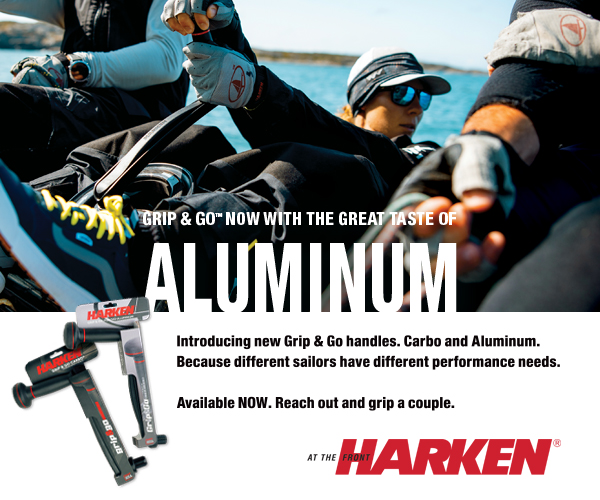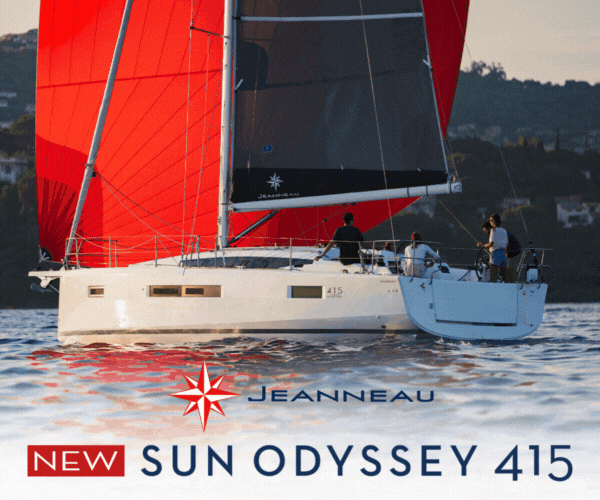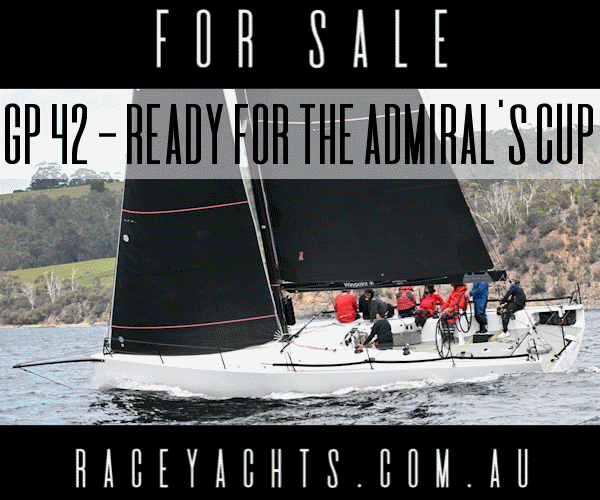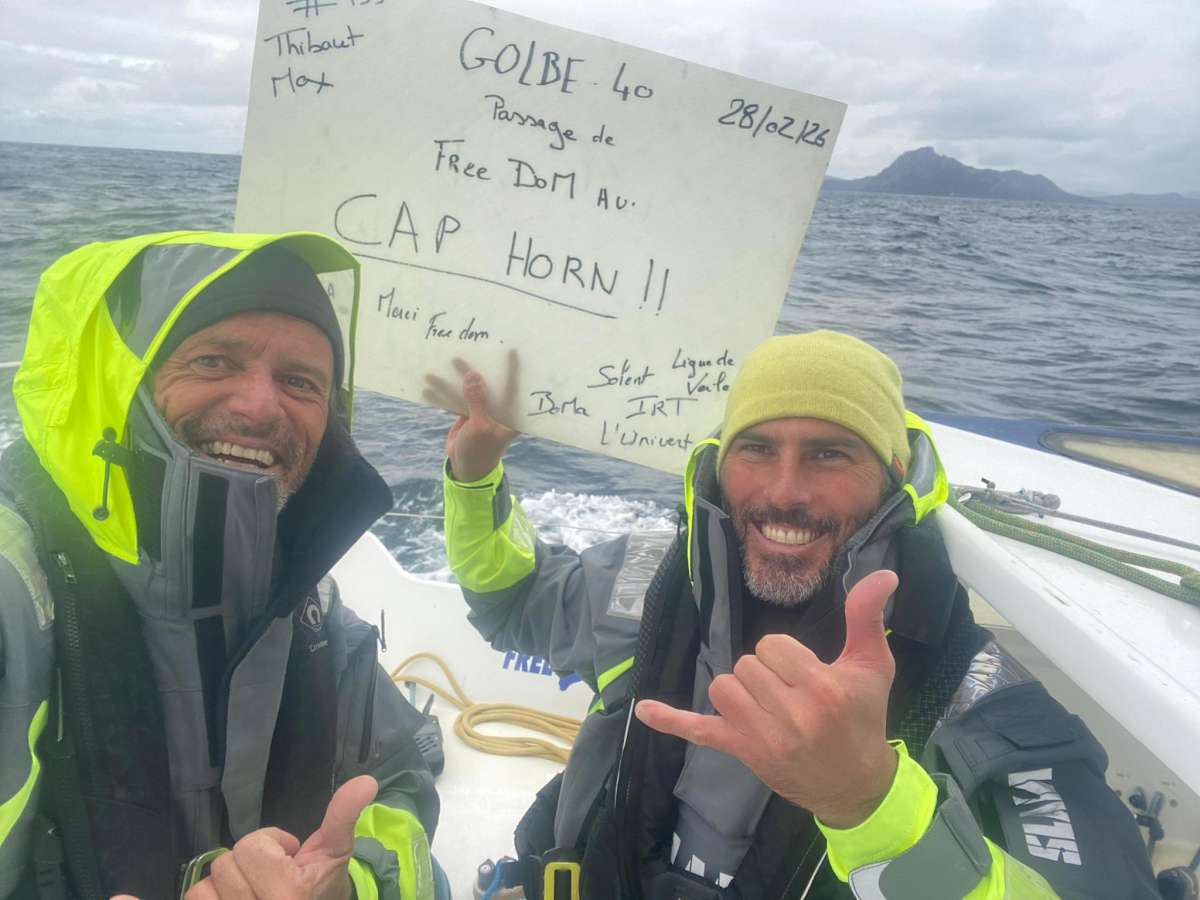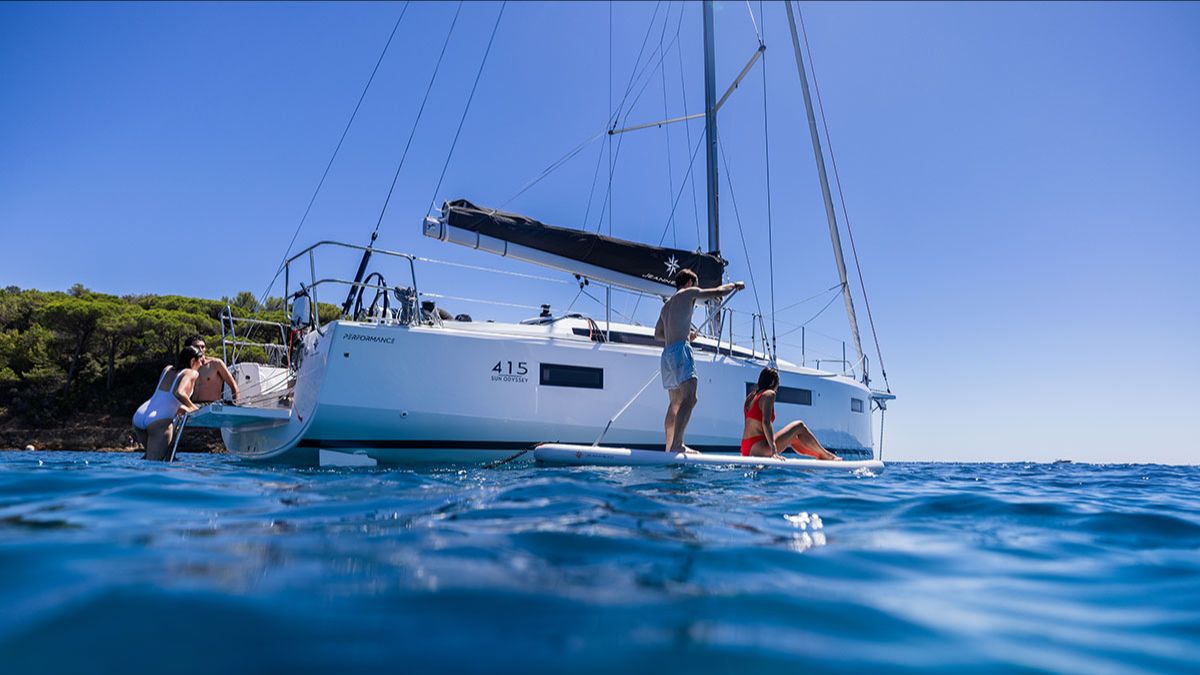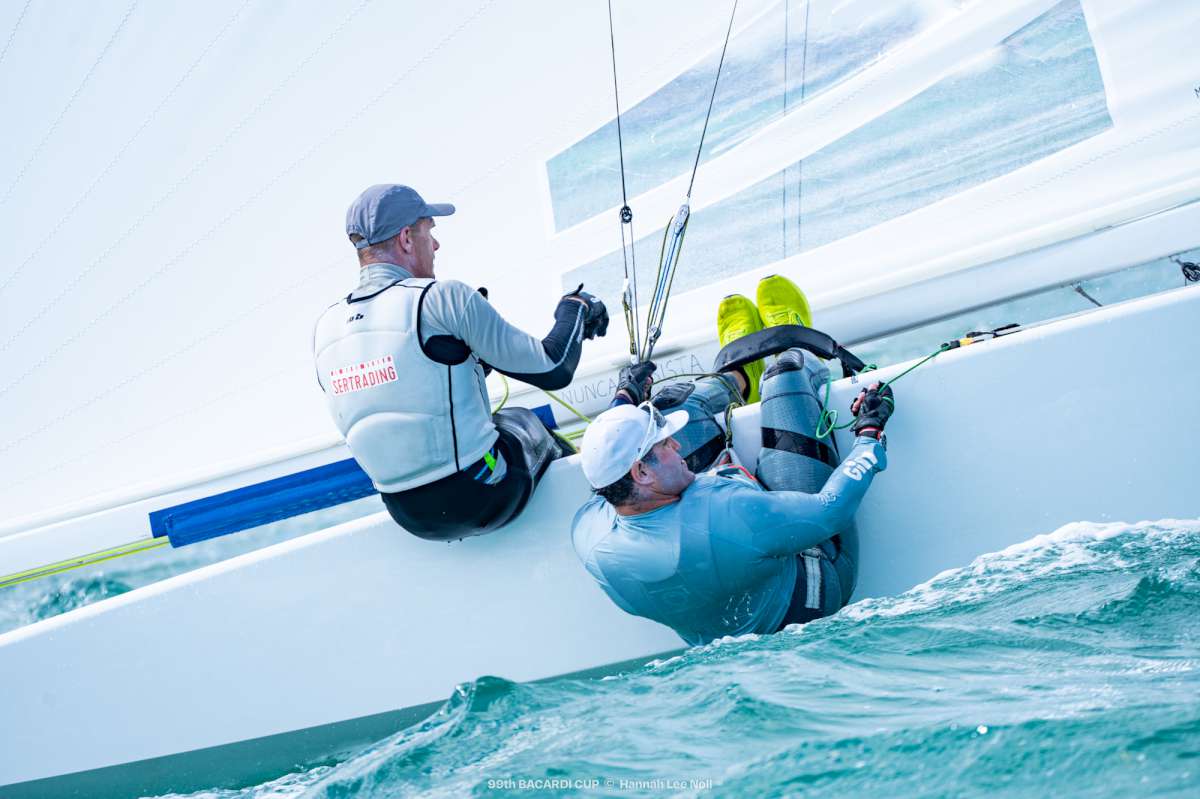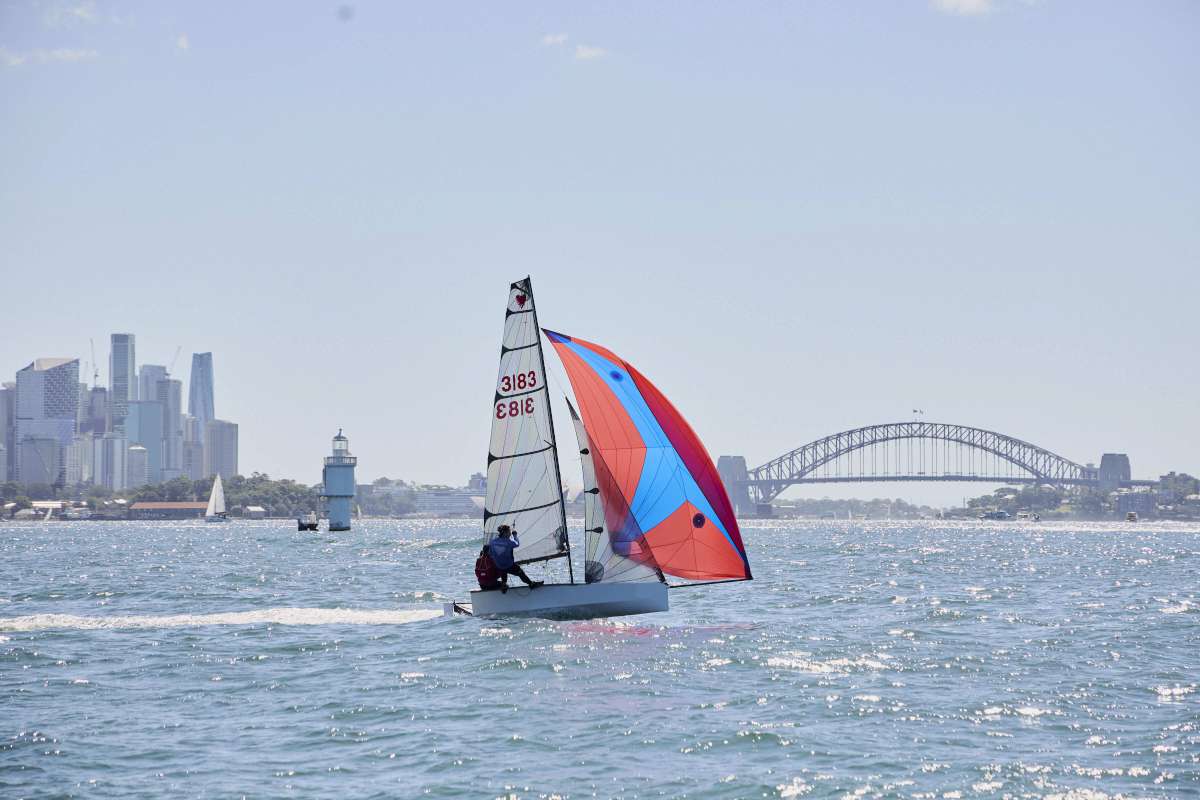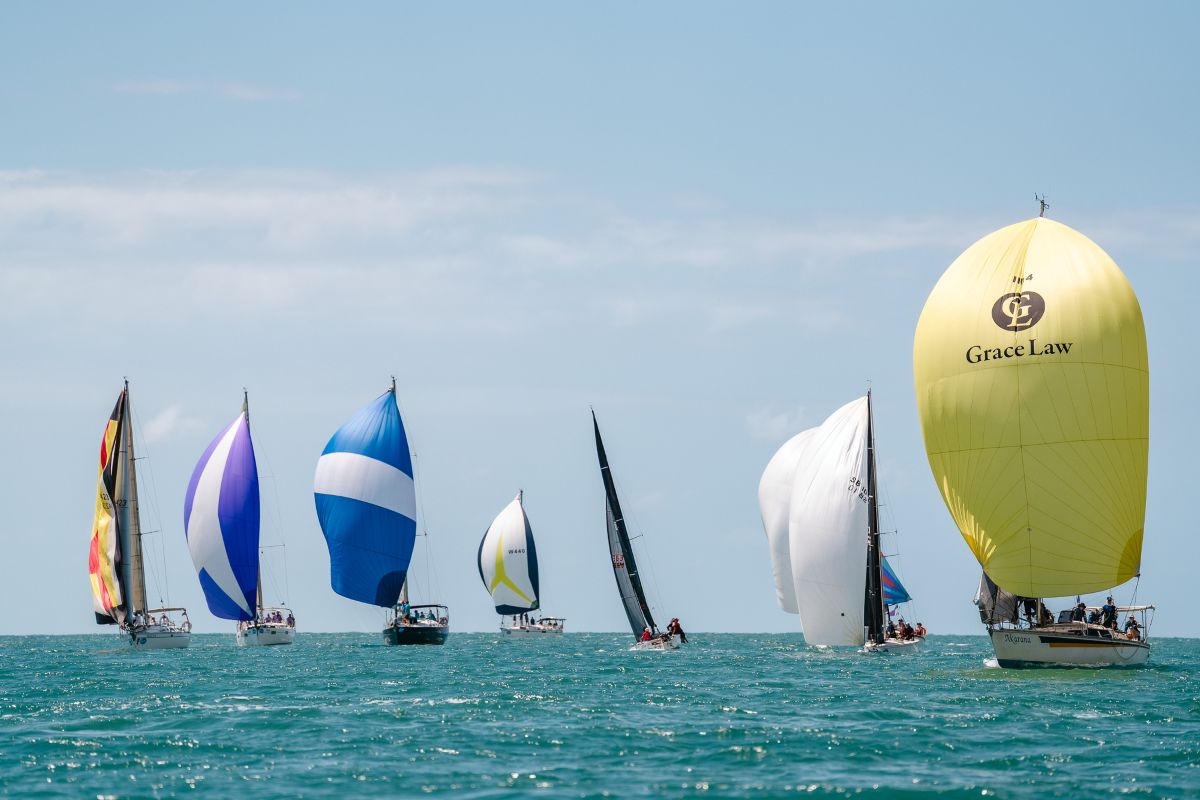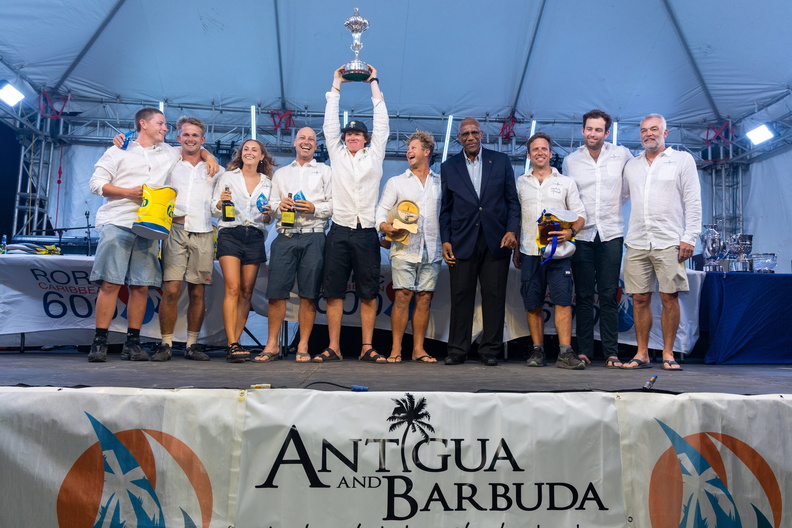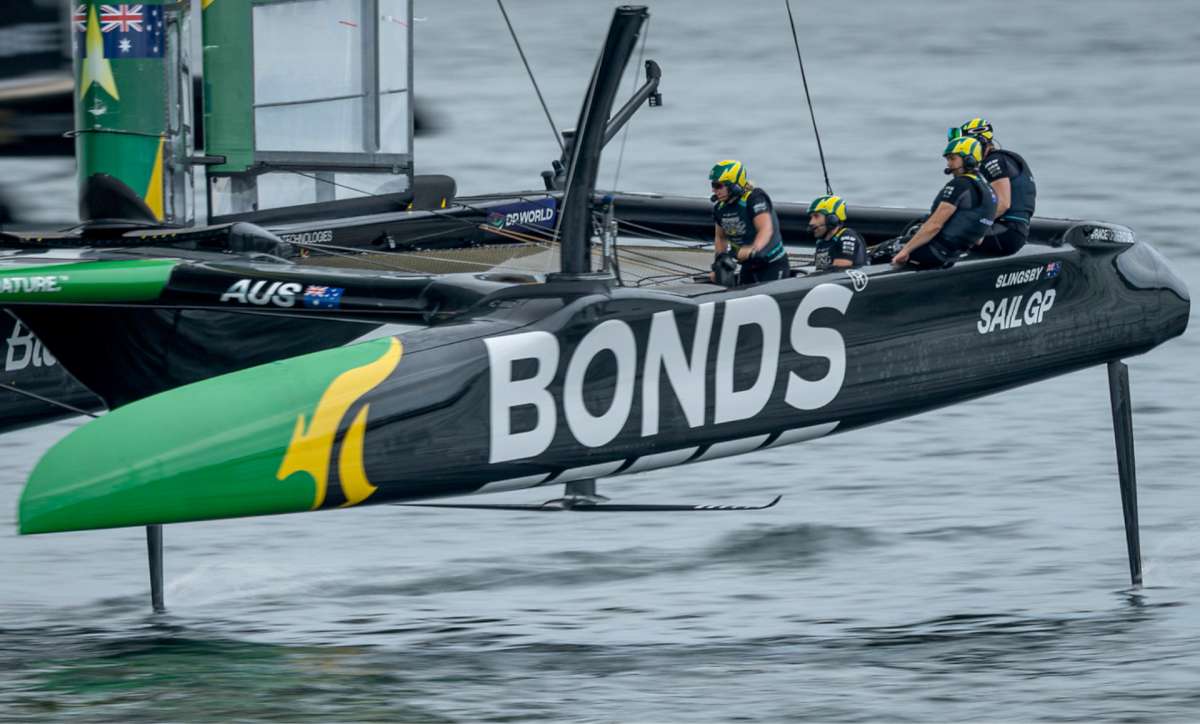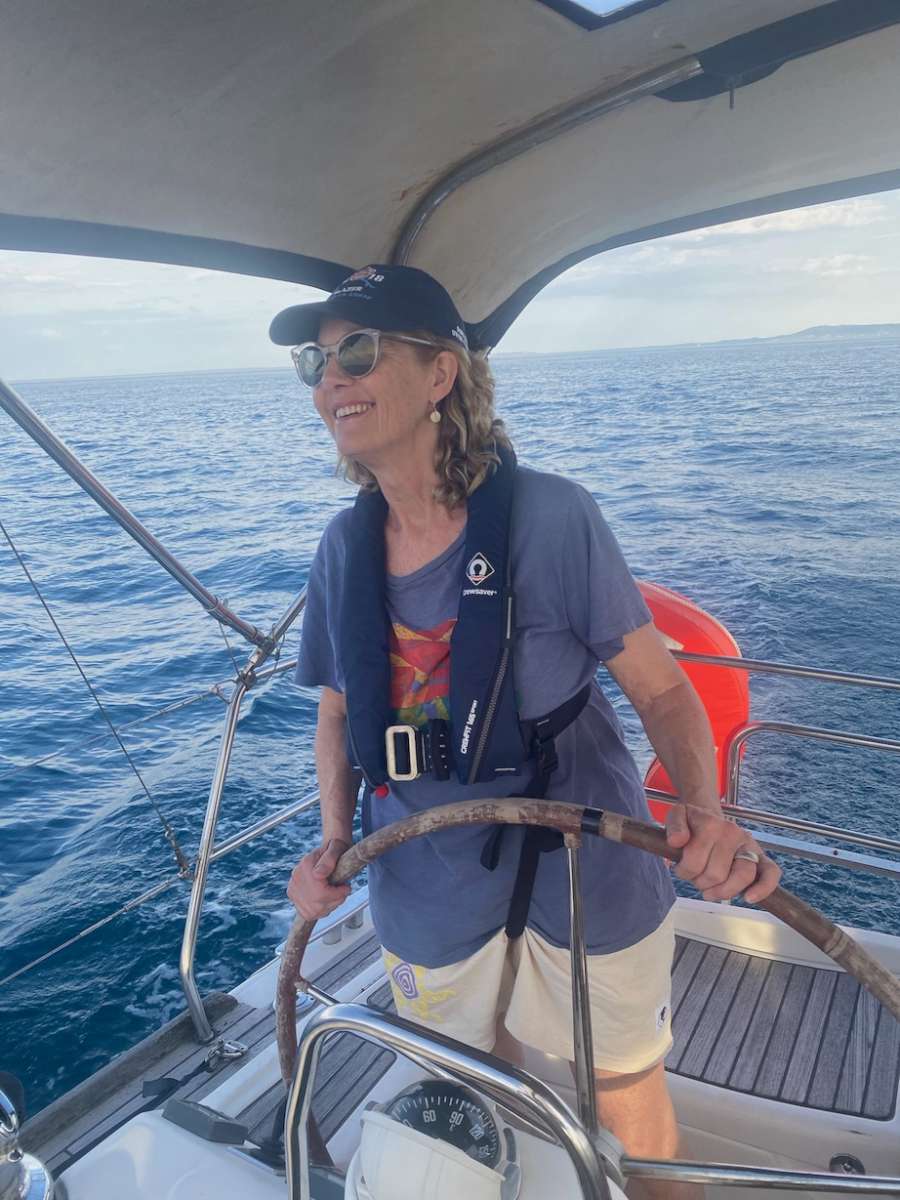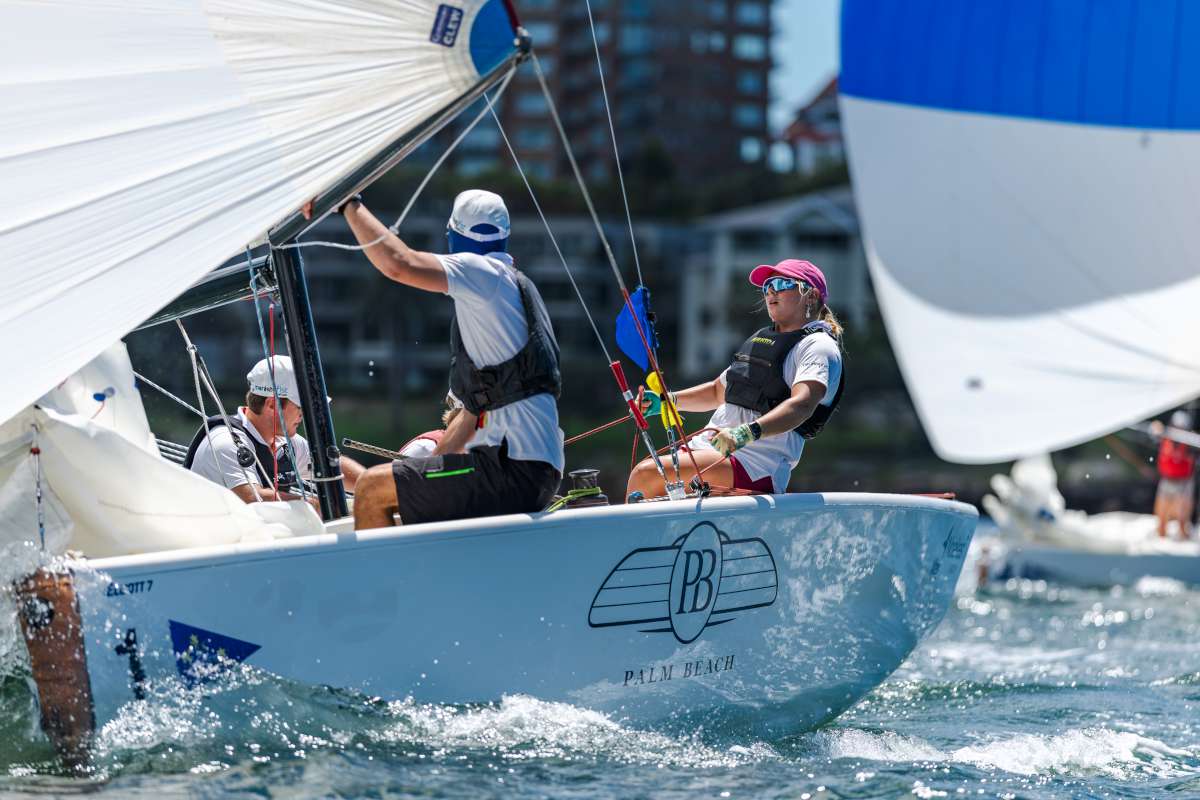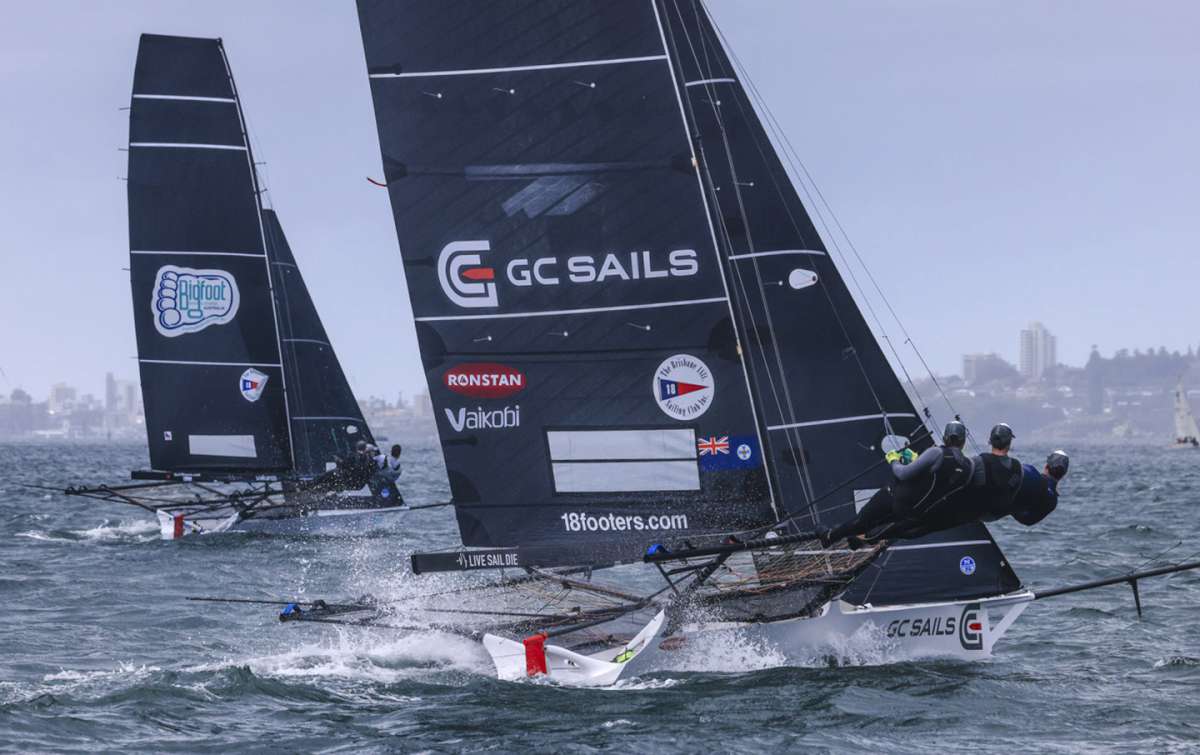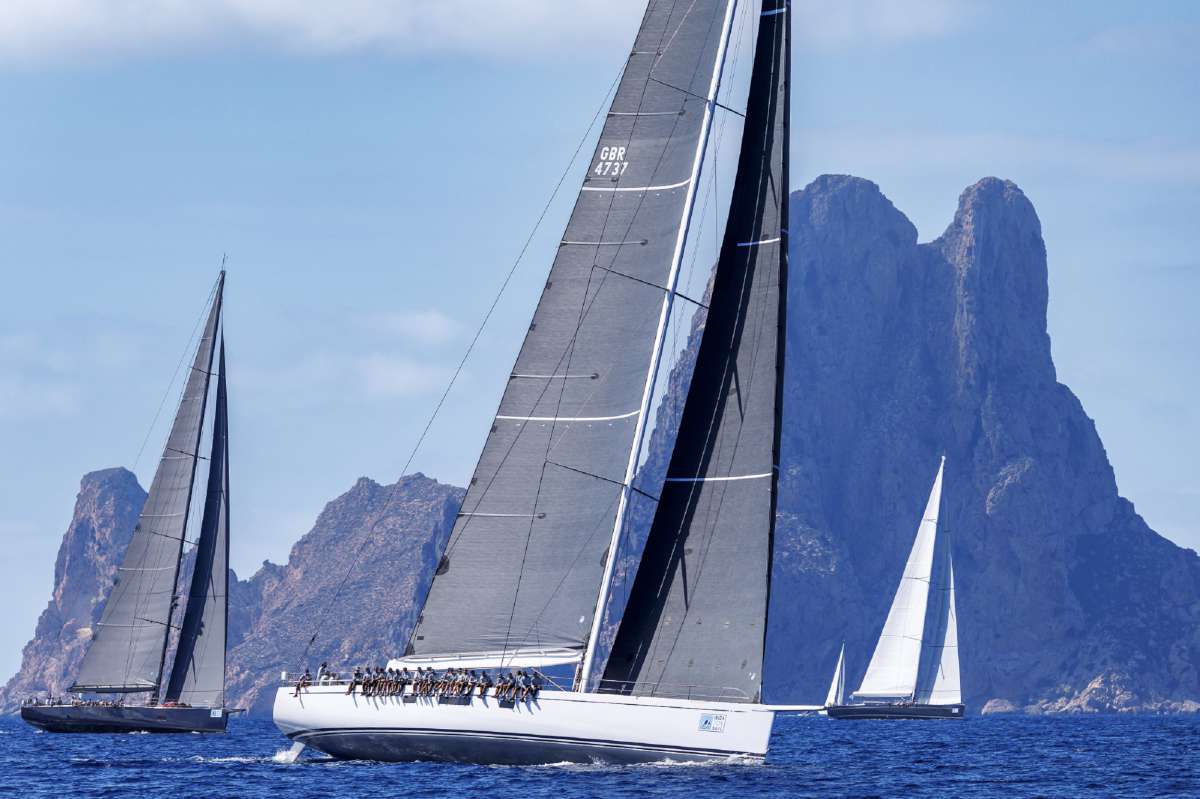Roger Priest checks out the latest import from overseas – the South African-built Leopard 40 luxury catamaran.
Here's the open-water proof. Ten thousand miles, two ocean crossings and this 12-month-old Leopard 40 is in pristine condition, boat-show ready. Literally the only sign of the extensive cruise was slight fading of the headsail suncover wrap.
Owners Linda and Paul Blackbeard told me they averaged an impressive 6.2 knots point-to-point crossing both the Atlantic and Pacific Oceans. They sailed tradewind routes, so generally had quartering seas. In lighter winds their speed was boosted with the optional gennaker. Linda and Paul experienced no disquieting moments.
On quizzing them about bridgedeck clearance, which I measured at 54cm, they could recall only about three wave slams. That's about one or so per ocean crossing, so you have to believe that designers Gino Morelli and Peter Melvin have got it right for this design. It's performance out at sea that counts, not artificial prescriptions of what bridgedeck clearance should be. Paul Blackbeard's tip for catamaran cruising success and safety: reef down early. That way you are not stressing the crew or the boat or going anywhere near its stability limits. They carried, but didn't have occasion to deploy, a parachute sea-anchor.
The test boat was equipped with the optional larger engines (29 instead of 21hp Yanmars), davits, RIB dinghy, outboard, liferaft, Fiorentino parachute-anchor, spare anchor/chain, AGM batteries, GPS/chartplotter, stereo, TV, VHF, instruments, EPIRB, autopilot, icemaker, gennaker, storm jib, wind generator, solar panels, 220V 50Hz shore power/charger/inverter, powered winch at the helm – to name just a few.
Leopard Catamarans has an excellent policy of pricing a base boat, keeping that standard on the production line, and then having a lengthy string of factory options. The base price of the Leopard 40 is US$349,000 ex-factory plus water delivery (US$40,000) and GST. All the options are presented along with prices in a simple spreadsheet, so you can play on your PC with options to suit your needs and budget. Using US dollars brings some consistency to global pricing as we have seen currencies have had a roller-coaster ride in recent times. Of course, you can have dealer-fitted options and then later add your own after-market options, so there are many ways to skin this cat.
On the water
Test day in Moreton Bay, out from Manly boat harbour, produced disappointing 6-9 knots breezes. But the figures were impressive nonetheless: 6.1 knots water speed at 70° apparent in nine knots true wind. Then close-hauled at 45° apparent with a seven-knot true wind we made an excellent 5.5 knots water speed. The polar diagram indicates nine knots water speed at 80° apparent in a 16-knot breeze. With the optional gennaker in the same breeze kick that up to 10.2 knots water speed at 95°. Tacks with the Edson cable steering were reliable, but in true cruising style the autopilot was engaged for effortless sailing once on track. I noticed the ocean-experienced crew used a barber-hauler to help control headsail shape in the light wind conditions.
The twin 29hp Yanmar saildrives pushed us along at 7.1 knots. This was at 2200rpm, the long established cruising optimum on this boat for those necessary periods under power. Pushed to the 3200rpm limit, the Leopard 40 made 8.8 knots. Expect not much less with the standard 21hp motors in good conditions. But I would be opting for the 29hp donks, secure in the knowledge that the boat would, in adverse or emergency situations, still make adequate headway into the dreaded combination of heavy head seas, current and strong winds.
On deck
Striking, and making the marque immediately identifiable, are the three steps-cum-sunvisors right across the saloon forward windows. They provide excellent shade inside the saloon and make stepping up to the cabin-top almost a stroll – certainly very friendly for aging baby-boomers like me. There's enough space round them to shed solid water rapidly so no concern from that aspect. The bows are good looking from all aspects and of average height, happily avoiding the trend toward high bows (with increased side-windage and leeway) among some current European cats. I would have liked a safety rail/wire across the bow, but this is an easy item to retro-fit.
The trampoline is large – good for safety – reducing bridgedeck weight, windage and, to coin a term, waterage. It is extra-well secured with doubled-up cordage in no fewer than six separate sections, freeing it from the common problem of a single failure causing the whole tramp to let go.
A Quick Hector horizontal anchor winch (model HC1012D) of adequate pulling capacity comes standard. It allows freefall anchoring via a sheet winch handle, features a warping drum for seamanship, and handheld control. The anchor comes home through a hole similar to that seen on many high-speed powerboats. This effectively restricts your choice of anchor to those without roll-bars. I would like to see the underdeck moulding altered such that any type of anchor could be housed – similar to the set-up found on larger Fountaine-Pajot cats. The Leopard 40 ships without anchor unless you specify a factory option (Delta or Britany). The Australian dealer has opted to supply a 60lb Manson plough as standard. Great size but many better holding-power and weed-penetrating choices around now such as the Sarca Excel.
There are four foredeck lockers – anchor and anchor winch centrally on the fore-and-aft line and a large locker to each side. These latter two provide copious room for a spare anchor, chain, gas bottle, fenders, lines, gennaker and the like.
Stepping up to the saloon cabin-top gives ready and safe access to the boom and to mast reefing points. From the saloon cabin top I stepped easily aft and higher again onto the solid back canopy. You should only need to go there very occasionally to access the aft end of the boom. Mainsail reefing is via two slabs with the reefing line led aft to the helm.
The small vertical gap between saloon cabin top and back-deck canopy is great for helm viewing – either sitting or standing – and can be optionally filled with clears but this Leopard 40's owners didn't see a need for them in tropical and subtropical cruising, preferring the free ventilation alternative. They report the boat to be relatively dry spray-wise with only horizontal driving rain to be a problem at the helm. There is a well-designed large sliding hatch above the helm in the hard-top. It is opened to view sail shape.
You couldn't help liking the back-deck layout. A great deal of thought as to ergonomics has gone into it. Seated at the helm you can talk to all down lower on the back deck and, with a bit of a lean down, to those in the main saloon and galley. What a boat for a party! Owners Linda and Paul report 20-30 people to be no problem in a safe anchorage. I reckon at least 16 would be comfortably seated in a combination of back deck and saloon. The boat is designed for 10 max at sea. There is a large sliding see-through door to the saloon. It has a central securing point for passage underway in cold or foul weather. The only limitation to the layout, with its starboard high-set helm, is viewing when coming alongside port-side-to. The boat is sufficiently high-sided to need a step when accessing either side deck from a marina finger. No problem, of course, if you've backed into a berth, when access is by either transom. The solid glass davits on the test boat looked great and safely supported a quite large RIB dinghy well clear of any wave action. The dinghy had a cover to shed solid water, but it wasn't needed in two ocean crossings, once again testimony to the design's seaworthiness. And should things go wrong, the liferaft stowage is under the after section of the back-deck bench seat, where you would be able to deploy it in relative comfort and protection. Lifejackets are in there too. And the standard emergency tiller is readily available should it ever be needed. Not yet for the test boat.
Electrical
I was impressed with the standard lighting – a combination of halogen downlights and LED navigation and footlighting. Better still to report, the Leopard 40 joins the small but growing number of production boats fitted with a multi-stage regulator for efficient engine charging. In this case the well proven Xantrex, which can cope easily with regulating the output from both 80-amp engine alternators.
The optional electro-mechanical Raytheon 6002 pilot hadn't missed a beat in 10,000 miles. It was used continuously. As on most boats without windvane steering, the daily power draw is largely from a combination of autopilot, refrigeration and lighting. With four owner-fitted 80-watt flexible solar panels and Eclectic wind generator, the owners found running one engine for two hours a day at 2200rpm kept the three 210ah AGM house batteries adequately charged. The standard house bank is two 190ah lead acid but in my view the option to AGM and three in number is highly desirable for a cruising boat.
Above the nav station in the saloon is the main switchboard. And hidden down in the starboard hull (behind an easy-to-remove panel) I found a neat fuse and distribution panel. My wish there would be for greater use of circuit-breakers rather than fuses.
Below decks
Cherrywood panelling abounds. Interiors are a big selling point and this boat doesn't disappoint. The galley is “up” in cat parlance and appeared safe, functional and good looking. Twin sinks. A natty rubbish bin with top access from the galley and side access from the saloon for bin liner change. Microwave and two-burner Force 10 gas range/oven. Heaps of storage space for food and utensils. A combined front-opening, twin-door 110L fridge 110L freezer is port side below the nav station – a good compromise in this sized cat. You can pass things straight from fridge to galley bench or the saloon or back deck tables quite easily.
This was the three-cabin owner's version. Owners live in the starboard hull, where they enjoy a large aft cabin, dressing area, small study and large (forward) bathroom. It is possible through clever design to close off the whole starboard hull from the saloon for privacy. Forward of the bathroom, accessed via the shower, is a large storage locker for light items (don't want heavy weights too far forward) with sealed collision compartment below. The port hull features a bathroom and two double berth cabins, with the possibility of a person crawling over the forward twin berth to access a single berth right forward (sealed collision compartment below). Heads in both bathrooms were electric flushing in the test boat, feeding to a 54L (27 flushes) stainless tank in each. The holding tanks are gravity-draining at sea or deck-pump-out in harbour. They are a bit small for extended stays in no-discharge waters and would be better long-term in rotomoulded plastic (urine will eventually corrode any metal). For three couples, the total 54 flushes isn't going to last long – just over two days at my reckoning. Remarkable in the cabins is a boat total of nine top-quality Lewmar hatches with sliding insect and sun screens. And four Lewmar portlights in each hull. The combination makes the cabins light and airy. By opening the right hatch it is possible to speak with crew on the back deck from either of the aft cabins. The saloon is luxurious, comfortable and features non-slip simulated Austrian walnut decking. Its layout and design is only bettered in larger cats.
Marine engineering and construction
In each hull companionway there is a manual Whale Gusher pump with pickup low in each hull. Electric bilge pumps with alarms are provided for each hull and for each engine room. Plus there is a roving back deck pump with long pickup capable of reaching any part of either hull. Gas is stowed in a back deck locker in either two 4.5kg bottles or a single 9kg one. If the latter, like the test boat, you can keep a spare in one of the forward deck lockers adjacent the anchor winch. The keels are sacrificial. A fine idea. Damage them in a severe rock or coral grounding and you can choose to either replace or repair. And hulls are of composite GRP sandwich with vacuum-bonded balsa core. An isophthalic outer layer protects the underwater hull sections from hydrolysis and osmosis. With the boat's exceptional load-carrying capacity (see break-out specs box) beam is carried well aft. And this results in roomier then average engine compartments. I hopped down into one and found I could sit and work comfortably on all four sides of the engine. The builders, varying from their past practice, have such confidence in this new design never capsizing that they have chosen not to offer an escape hatch either as standard or as an option. Owners of the test boat, Linda and Paul, said they had complete confidence in the boat and that departure from the boat in that extreme event would be straightforward, via swimming through the saloon doorway. More to the safety point a cat expert reiterated the need for owners to retro-fit jackstays under the bridgedeck and to choose a bright non-sea-coloured antifouling – like red – to cater for that notional one-in-a-million chance.
Summary
This is a state-of-the-art cruising catamaran. It offers real value through production volume, comparatively low South African labour costs, vast evolutionary catamaran experience of the builders, valuable cross-fertilisation with the charter market and heaps of customisation options at good prices for the prospective owner.
OPINION
Likes
• State-of-the-art design in terms of hull shape, motion, efficiency and handling.
• Excellent value for money and resale value.
• Proven boat-builders with a long successful cat-building history and an expanding future.
• Great to see a cruising-ready smart alternator regulator to minimise daily engine running for battery charging.
• Superb back-deck ergonomics and helm with excellent sun protection for helm.
• Replacable/sacrificial keels.
Dislikes
• I would have preferred the transoms to offer side access on the inside for ease of unloading heavy items from the dinghy in remote cruising anchorages.
• Anchor securing hole not positioned to allow all types of new-generation anchors, especially roll-bar types.
• Smallish sewage holding tanks. I would like to see 100 litres minimum per head and to see them made from rotomoulded plastic as recommended by US sewage guru Peggy Hall.
SPECIFICATIONS
LOA 11.97m
LWL 11.43m
Beam max 6.13m
Beam each hull (at WL) 1.42m
Draught 1.2m
Bridgedeck clearance (measured on test) 54cm
Displacement (light) 7,630kg
Displacement (max) 11,780kg
Tank fluidsapprox 1,250kg, other fit-out +
payload approx 2,900kg)
Mast above DWL 18.9m
MainsailQuantum 57sqm
GenoaQuantum 39 sqm (120 percent)
Gennaker (if supplied) 94 sqm
Enginesstandard 2 x 21hp (15kW) Yanmar
Engine options 2 x 29hp (21kW) Yanmar (fitted to test boat)
Propellers fixed two-blade
Propeller option Gori two-blade folding
Alternators 2 x 80 amphour
Alternator regulator Xantrex smart three-stage
Anchor winch Horizontal Quick “Hector” HC1012D, warping drum, 1000 watt, 400kg max working load, 30kg normal working load
Fuel 350L std in aluminium tanks
Water 780L std in rotomoulded plastic
Holding tank 54L stainless adjacent each head (27 flushes)
Construction composite GRP sandwich, vacuum-bonded balsa core
Mast, boom Sparcraft with Antal mast-slider system, slab-reefing
Furler Profurl C420
Architect/Designer Gino Morelli and Peter Melvin
Builder Robertson and Caine, Cape Town, South Africa
Boat supplied by: Leopard Catamarans Australia
Level 30, AMP Place,
10 Eagle St Brisbane 4000
Websitewww.leopardcatamarans.com.au
Emailsales@leopardcatamarans.com.au
Phone 61 422 638 157 or toll-free in Australia 1300 661 321
